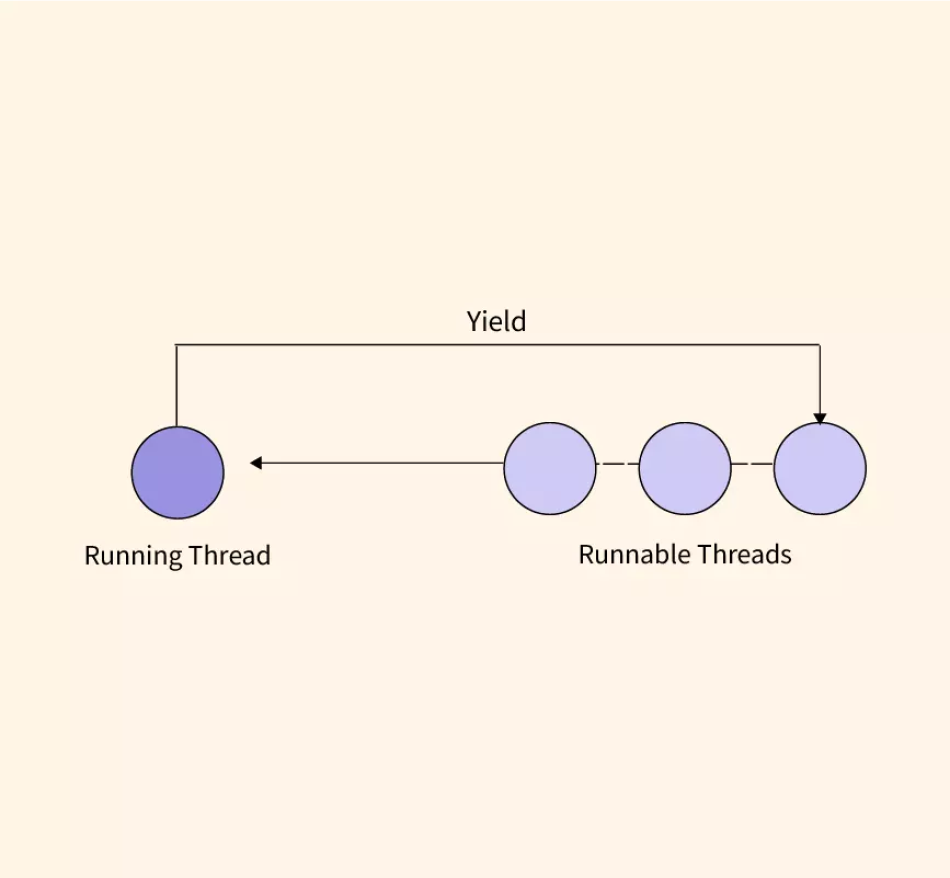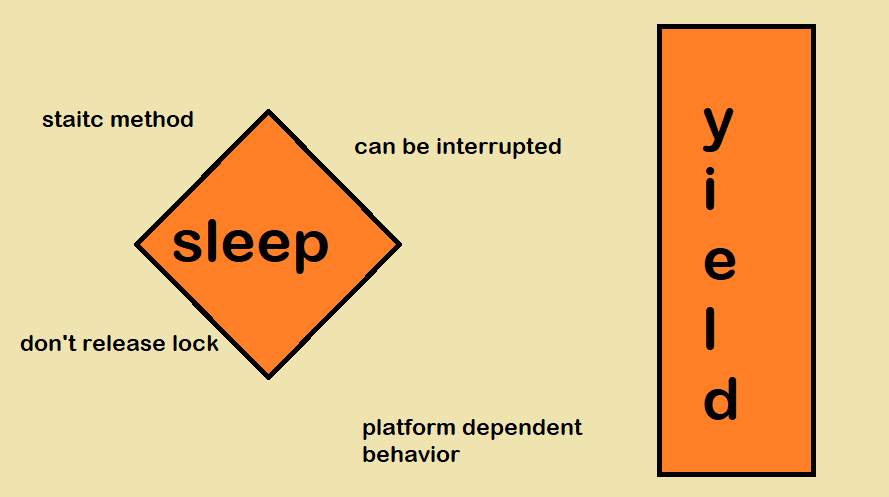Why the yield() Function in Java Does Not Work and How to Address It
 Tuanhdotnet
Tuanhdotnet4 min read

1. What Is the yield() Function in Java?
The yield() function is a static method of the Thread class. Its intended purpose is to pause the current thread, allowing other threads of the same priority to execute. However, its actual implementation often falls short of expectations.

1.1 Theoretical Purpose of yield()
In theory, calling Thread.yield() hints to the thread scheduler that the current thread is willing to yield its execution slot. This allows other threads of the same or higher priority to execute.
1.2 Syntax of yield()
The syntax is straightforward:
Thread.yield();
1.3 The Issue with yield()
Despite its simplicity, yield() does not guarantee any specific behavior. Whether a thread actually yields or continues execution depends entirely on the JVM and the operating system’s thread scheduler.
2. Reasons Why yield() Does Not Work as Expected
Understanding why yield() does not behave predictably requires delving into its implementation and the factors influencing thread scheduling.
2.1 Lack of Enforcement
The yield() method relies on the underlying thread scheduler to suspend the current thread and allocate CPU time to other threads. However, most thread schedulers do not strictly honor the yield() request, especially on modern operating systems.
2.2 Platform-Dependent Behavior
The behavior of yield() varies across JVM implementations and operating systems. For example:
- On some platforms, yield() might have no observable effect.
- On others, it might briefly suspend the thread but resume execution almost immediately.
2.3 Misunderstanding of Use Cases
yield() is not intended for precise thread control. Developers expecting deterministic behavior from yield() often misuse it in scenarios where alternatives like wait() or sleep() would be more appropriate.
3. Demonstration of yield() Behavior
To understand the behavior of yield(), let’s examine a code example.
public class YieldExample {
public static void main(String[] args) {
Thread t1 = new Thread(new Task(), "Thread-1");
Thread t2 = new Thread(new Task(), "Thread-2");
t1.start();
t2.start();
}
}
class Task implements Runnable {
@Override
public void run() {
for (int i = 0; i < 5; i++) {
System.out.println(Thread.currentThread().getName() + " is running");
Thread.yield();
}
}
}
The expected behavior is that the threads will alternately execute, as yield() should allow the other thread to run.
Actual Outcome
On many platforms, you might observe one thread dominating execution, with minimal yielding to the other thread. For instance:
Thread-1 is running
Thread-1 is running
Thread-1 is running
Thread-1 is running
Thread-1 is running
Thread-2 is running
Thread-2 is running
Thread-2 is running
Thread-2 is running
Thread-2 is running
4. Alternatives to yield() for Thread Coordination
Given its unreliability, yield() is rarely used in production code. Here are better alternatives for managing thread execution.
Using Thread.sleep()
The sleep() method pauses a thread for a specified duration, providing more predictable control:
Thread.sleep(100); // Sleeps for 100 milliseconds
Using Locks and Synchronization
For complex scenarios, synchronization primitives like locks and semaphores offer precise thread management:
synchronized(lockObject) {
// Critical section
}
Using Executors for Thread Pool Management
The ExecutorService framework provides robust tools for managing thread lifecycles:
ExecutorService executor = Executors.newFixedThreadPool(2);
executor.submit(() -> System.out.println("Task 1"));
executor.submit(() -> System.out.println("Task 2"));
executor.shutdown();
5. When Should You Use yield()?
Despite its limitations, yield() has niche use cases.
Debugging and Profiling
yield() can be useful for temporarily reducing thread contention during debugging.
Cooperative Multitasking in Simulations
In scenarios like simulations, where threads must voluntarily yield control, yield() might be a lightweight option.
6. Conclusion
The yield() function in Java is a subtle tool that works only under specific conditions. Its reliance on the thread scheduler and platform-specific behavior often leads to inconsistent outcomes, making it unsuitable for critical thread coordination tasks. Developers are encouraged to use more reliable alternatives like sleep() or the ExecutorService framework for managing concurrency.
If you have any questions or want to share your experiences with yield(), feel free to comment below! Your insights can help others navigate this intricate aspect of Java programming.
Read more at : Why the yield() Function in Java Does Not Work and How to Address It
0
Subscribe to my newsletter
Read articles from Tuanhdotnet directly inside your inbox. Subscribe to the newsletter, and don't miss out.
Written by

Tuanhdotnet
Tuanhdotnet
I am Tuanh.net. As of 2024, I have accumulated 8 years of experience in backend programming. I am delighted to connect and share my knowledge with everyone.